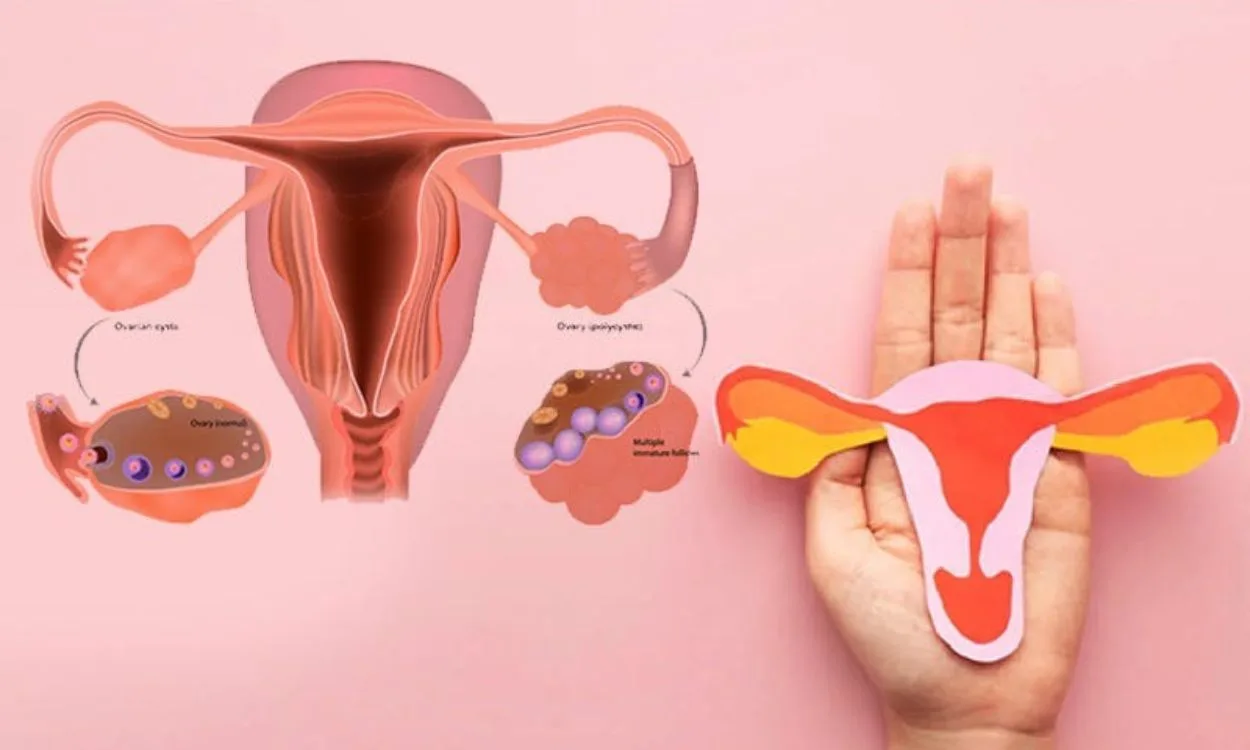Is PCOD linked to hormonal imbalances?
Polycystic Ovary Syndrome (PCOS), also known as Polycystic Ovary Disorder (PCOD), is a common hormonal disorder that affects women of reproductive age. It is characterized by multiple cysts in the ovaries, irregular menstrual cycles, and hormonal imbalances. Many women with PCOS experience a range of symptoms and potential complications that can impact their reproductive health and overall well-being. In this article, we will delve into the link between PCOD and hormonal imbalances, exploring the causes, symptoms, and management of this condition.
Understanding PCOD and Hormonal Imbalances
PCOD is closely associated with hormonal imbalances, specifically in the levels of luteinizing hormone (LH), follicle-stimulating hormone (FSH), estrogen, and progesterone. These imbalances disrupt the normal functioning of the ovaries, leading to the development of cysts and other symptoms. The exact cause of PCOD is still not fully understood, but it is believed to be influenced by a combination of genetic and environmental factors.
Common Hormonal Imbalances in PCOD
- Insulin Resistance: One of the key factors in PCOD is insulin resistance, which refers to the reduced ability of cells to respond to insulin properly. This leads to increased insulin levels in the blood, which in turn triggers the production of androgens (male hormones) such as testosterone. Elevated levels of androgens can disrupt the normal ovulation process and contribute to the development of cysts.
- Increased Androgen Levels: Women with PCOD often have higher levels of androgens than normal. Androgens are responsible for the development of male characteristics, and their excess can disrupt the balance of female hormones, leading to irregular menstrual cycles and other symptoms.
- Imbalance of Luteinizing Hormone (LH) and Follicle-Stimulating Hormone (FSH): LH and FSH are two important hormones involved in the regulation of the menstrual cycle and ovulation. In PCOD, there is an imbalance between these hormones, with higher levels of LH compared to FSH. This imbalance further contributes to the formation of cysts in the ovaries.
- Estrogen and Progesterone Imbalance: PCOD can also disrupt the normal balance of estrogen and progesterone, the two main hormones responsible for regulating the menstrual cycle. This can lead to irregular or absent periods, as well as other symptoms such as acne, weight gain, and mood swings.
Symptoms and Effects of PCOD
PCOD can manifest in various ways, and the severity of symptoms can vary from person to person. Some common symptoms and effects of PCOD include:
- Irregular or absent menstrual periods
- Excessive hair growth (hirsutism) on the face, chest, or other parts of the body
- Acne or oily skin
- Weight gain or difficulty losing weight
- Insulin resistance and increased risk of developing type 2 diabetes
- Mood swings and depression
- Infertility or difficulty conceiving
- Increased risk of cardiovascular diseases
It is important to note that not all women with PCOD will experience the same symptoms, and the condition can present differently in each individual.
Managing PCOD and Hormonal Imbalances
While there is no cure for PCOD, there are various ways to manage the condition and reduce the impact of hormonal imbalances. The treatment approach may vary depending on the individual’s symptoms, age, and desire for fertility.
Lifestyle Modifications
- Maintaining a healthy weight: Losing even a small amount of weight can significantly improve PCOD symptoms and hormonal imbalances. This can be achieved through a combination of regular physical activity and a balanced diet.
- Regular exercise: Engaging in regular physical activity, such as aerobic exercises, can help improve insulin sensitivity and regulate hormone levels.
- Balanced diet: Opting for a diet that is low in refined carbohydrates and added sugars can help manage insulin resistance and hormone imbalances. Including plenty of fruits, vegetables, whole grains, and lean proteins can be beneficial.
Medications
- Birth control pills: Oral contraceptives can regulate the menstrual cycle, reduce androgen levels, and manage symptoms such as acne and excessive hair growth.
- Anti-androgen medications: These medications help block the effects of androgens and can be effective in managing symptoms such as hirsutism and acne.
- Insulin-sensitizing medications: Certain medications, such as metformin, can improve insulin sensitivity and help regulate hormone levels.
Fertility Treatment
- For women trying to conceive, various fertility treatments, such as ovulation induction, in vitro fertilization (IVF), and other assisted reproductive techniques, may be recommended.
Regular Monitoring and Support
- Regular visits to a healthcare professional, such as a gynecologist or endocrinologist, are important to monitor hormone levels, manage symptoms, and adjust treatment as necessary.
- Emotional support and counseling can also be helpful in dealing with the emotional and psychological challenges that may arise from living with PCOD.
Fitpaa: Your Companion in Managing PCOD and Achieving Health Goals
If you are looking for a holistic approach to managing PCOD and achieving your health goals, the Fitpaa mobile app can be a valuable tool. Fitpaa offers a personalized, evidence-based approach to health and fitness, incorporating the latest research in lifestyle medicine and behavioral therapy.
With Fitpaa, you can:
- Assess your metabolism and identify the root cause of your health condition.
- Receive personalized Fitpaa Capsules, which include medical therapy, exercise therapy, nutrition therapy, and cognitive behavioral therapy, tailored to your specific needs and goals.
- Benefit from real-time guidance and support through the Fitpaa app, which includes workout trainers, diet trackers, performance tracking, and progress tracking.
- Receive regular reviews and course corrections from a team of fitness planners, nutritionists, fitness trainers, and doctors to ensure you stay on track towards your goals.
- Achieve not only your PCOD management goals but also various other health and fitness goals, such as weight loss, weight gain, shape and tone, mental health, and more.
Fitpaa is committed to helping you achieve your health and fitness goals by providing a comprehensive and personalized approach to managing PCOD and other health conditions. Download the Fitpaa app today and take the first step towards a healthier and happier you.
Remember, managing PCOD and hormonal imbalances requires a long-term commitment to lifestyle modifications, regular monitoring, and support from healthcare professionals. With the right approach and support, it is possible to effectively manage PCOD and lead a fulfilling life.









